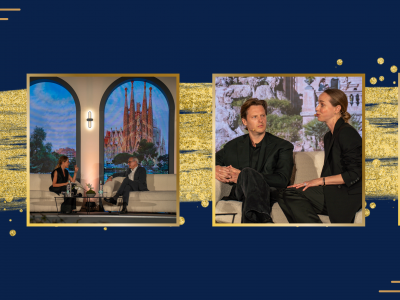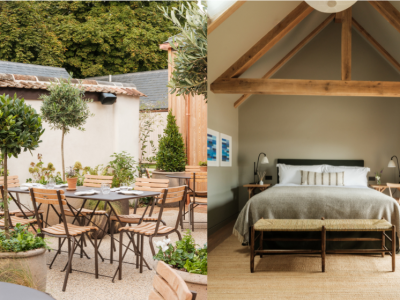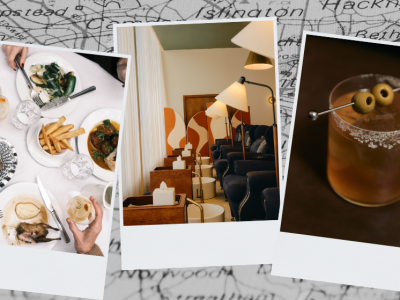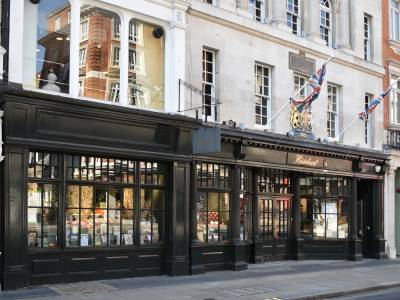The FT Business of Luxury Summit 2025 opened in style on 18 May with a welcome reception at the Hotel Arts Barcelona, marking the start of two packed days of insight and influence at the heart of the global luxury conversation. The topics discussed were diverse, ranging from the global economy and the scramble for ultra-high-net-worths, to luxury M&A, the resale boom, and the rise of experience-driven consumption. Against a backdrop of current geopolitical tensions, inflation and evolving consumer values, the Summit offered a timely, high-level look at how luxury is adapting through innovation, resilience and a redefined sense of purpose.
Inside FT Business of Luxury Summit 2025
18th July 2025
As a Supporting Partner, SPHERE looks back to the FT Business of Luxury Summit in Barcelona to uncover the panel conversations between luxury's industry titans, including Marc Puig, CEO Puig, and Damien Bertrand, CEO Loro Piana. Is AI redefining high-end fashion? What’s driving the boom in pre-owned luxury? And how will sustainability shape the industry’s future? SPHERE's Lisa Barnard attended the Summit and gives the highlights and the low down.
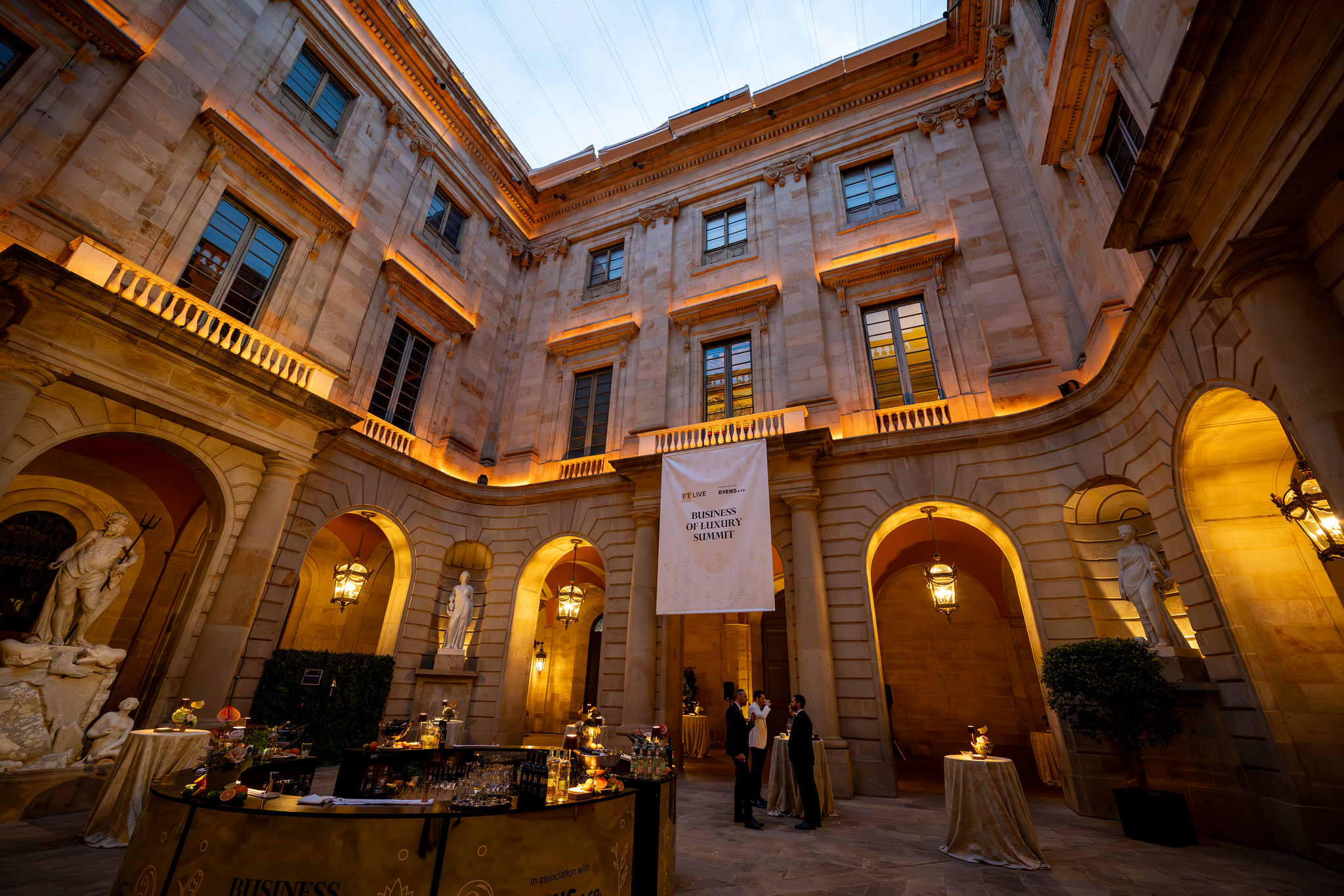
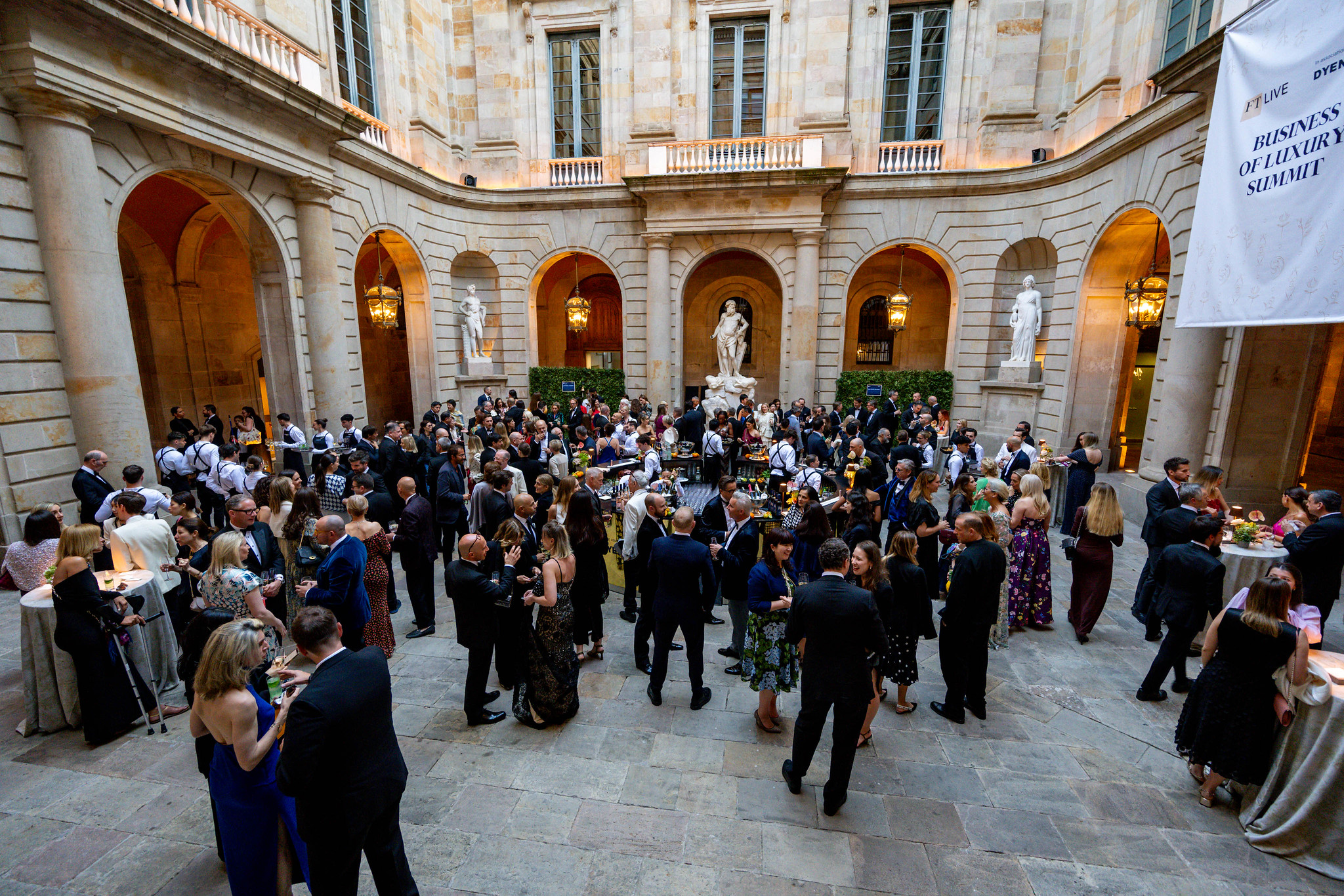
The evening’s black-tie gala at the historic La Llotja de Mar - a former opera house and jewel of Barcelona’s architectural heritage - offered a suitably grand stage for high-level networking and celebration. Day two turned to the future: AI’s role in luxury, the evolution of physical retail, and how to manage top-tier talent in an ever shifting art world, before concluding with closing remarks and a final networking lunch overlooking the Mediterranean.
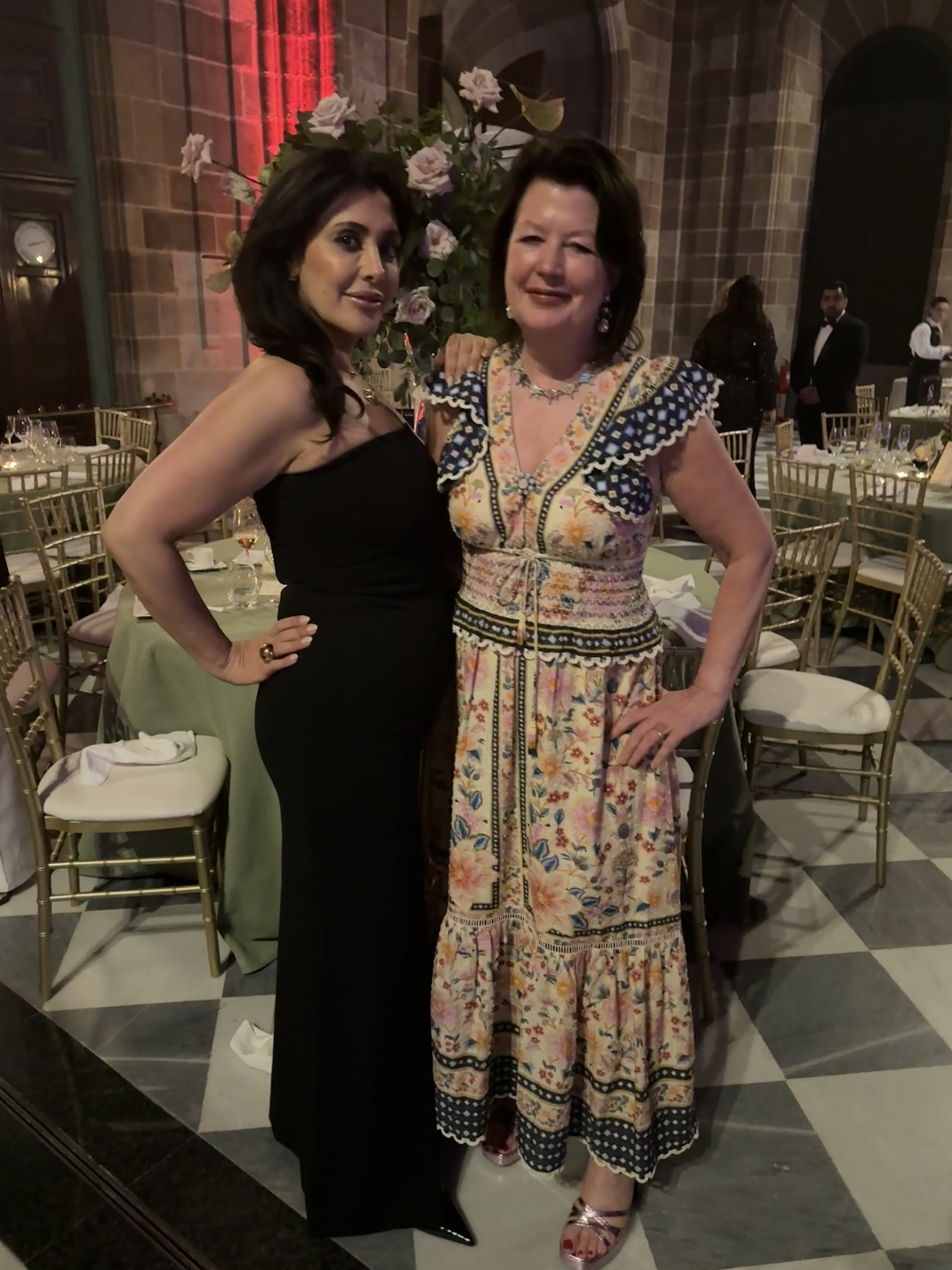
Set in the Gran Saló Gaudí, Barcelona
Set in the historic Gran Saló Gaudí of Hotel Arts, Barcelona, this 21st edition of the FT Business Luxury Summit explored the evolving contours of global luxury under the Supportive Partnership of SPHERE. With delegates from over 40 countries, the weekend event was headed by the timely theme of The New Shape of Global Luxury, and expertly co-chaired by FT Editor Roula Khalaf and FT Live’s Angela Mackay.
With panellists ranging from CEOs like Kristina Blahnik (Manolo Blahnik), Kristian Teär (Bang & Olufsen), and Mike Silvestro (Flexjet), to digital and resale pioneers including Fanny Moizant (Vestiaire Collective), Hanushka Toni (Sellier), and Alexis Hoopes (eBay), the programme tackled critical issues - from M&A trends and geopolitical risks to Gen Z consumer shifts and the booming resale economy. The FT brought together some of the sharpest minds in business and economics, including Martin Wolf and Lucrezia Reichlin, to unpack how luxury acts as both a mirror and motor of wider economic and cultural change.
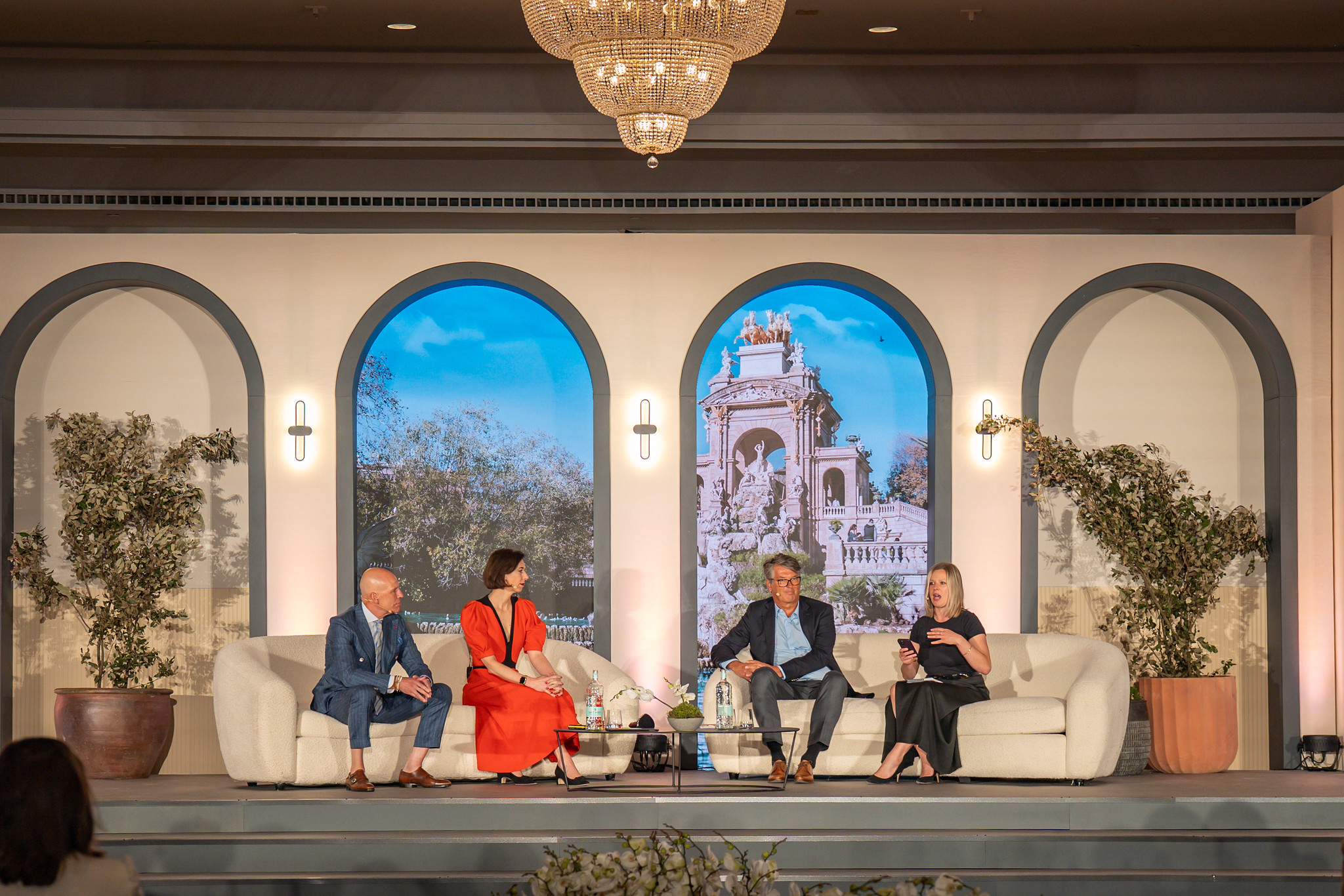
Amid market volatility and global uncertainty, this was not just a summit about style - it was a forum for strategic foresight. Across two days of rich conversation, the FT spotlighted the resilience, reinvention and relevance that define luxury today, as well as the bold leadership it demands for tomorrow.
The Battle for the VVIPs
In response to the general retreat of aspirational shoppers as a result of inflation and economic pressure, Adrianne Klasa moderated a panel featuring Kristina Blahnik, Mike Silvestro and Kristian Teär to discuss how luxury brands are zeroing in on their most reliable customers, ultra-high-net-worth individuals, who now account for up to 50% of global luxury spending. “We’re in a particularly volatile moment in the luxury industry,” said Adrianne Klasa, setting the tone for the discussion. “After explosive growth during the pandemic, things have become more challenging since mid-2023, largely due to the retreat of aspirational customers."
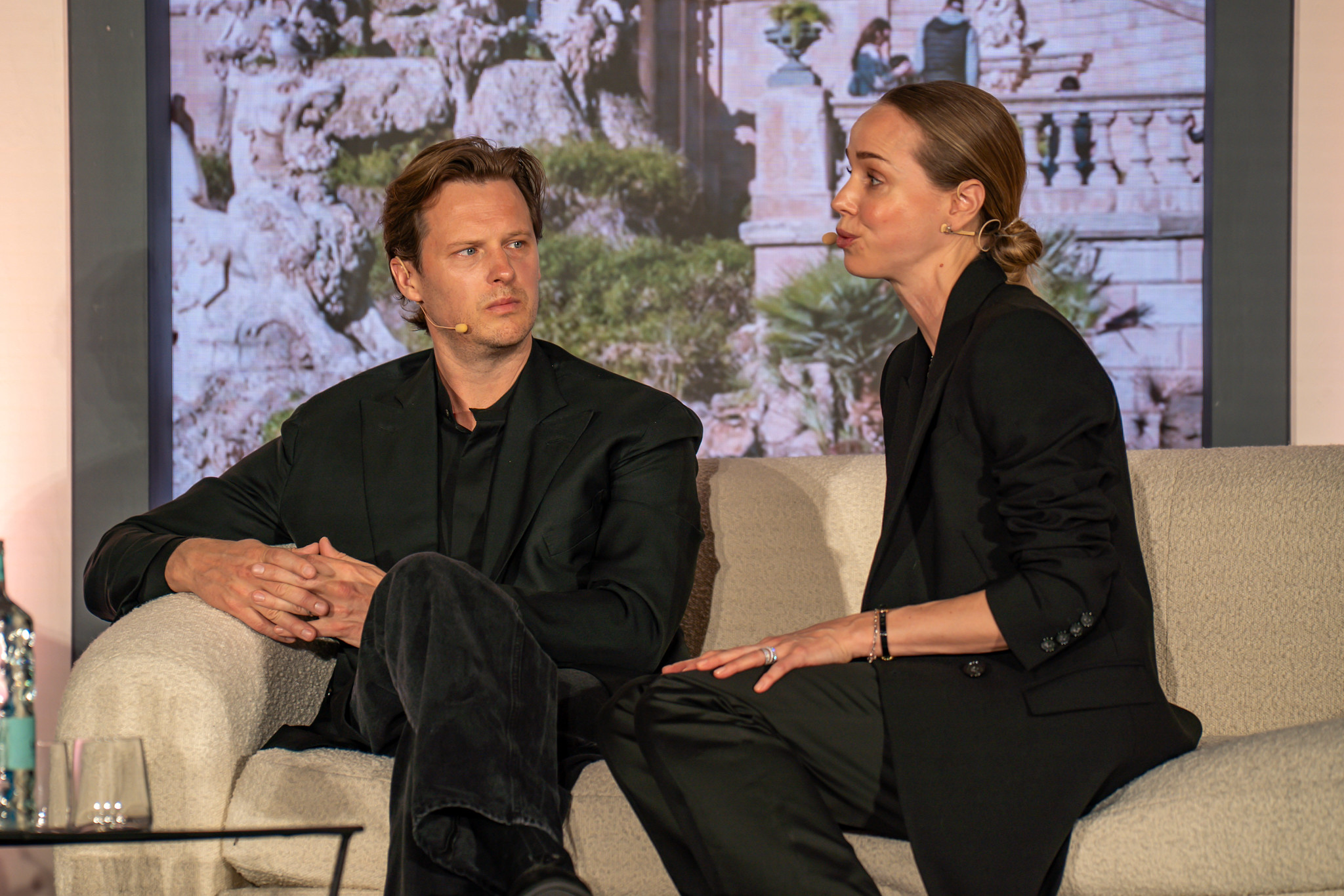
Kristian Teär, CEO of Bang & Olufsen, reflected on how this shift has impacted their business. “We were focusing on a broader segment before… [Now] it’s about luxury timeless technology.” He explained that the company is now customising its approach to UHNWIs, with a strong focus on pre-sale, in-store and post-sale experiences. Teär added that geographic strategy is just as critical: “We are focusing on the cities where the VVIPs are residing… they will play an increasingly important role going forward.” He also observed a resurgence in physical media among younger luxury buyers, describing a renewed interest in tangible items like vinyl and CDs as a counter to digital fatigue.
Teär went on to foreground the importance of experiences, noting: “It’s all about the experiences and personalisation, it’s not just about the product”. Teär, who mentioned celebrities and artists amongst his customers, highlights the importance of tailoring Bang & Olufsen products towards the VVIP segment of the consumer market, specifically to the cities in which B&O customers are residents. From a brand point of view, Teär is optimistic, despite the inevitably negative economic background: “We are following our path, our strategy, and I really believe we have untapped potential in this space”.
For Kristina Blahnik, CEO of Manolo Blahnik, the brand’s strategy hasn’t needed to change dramatically. “We’re probably a little bit of the outliers… we try to make it a beautiful experience. It’s timeless. It’s investment pieces.” Her emphasis was on loyalty and emotional connection - customers who see their footwear as a celebration of life milestones. She noted that these relationships have built a kind of generational brand pull: “Our top tier are incredibly loyal, and they are bringing in the new generations.” Blahnik also pointed out the growing value of direct-to-consumer engagement, as multi-brand retailers struggle to replicate the same level of care and storytelling.
Mike Silvestro, CEO of Flexjet, agreed that the top-tier market remains robust, even amid broader uncertainty. “Our market always has been the top 1 or 2% of the 1%… We benefitted from what we’ve defined as the frugal wealthy.” These are customers who could always afford private aviation but only committed post-pandemic. Silvestro described a striking generational shift: “The 42 to 45-year-olds are all in… They’re not starting with small airplanes. They’re starting right out in our mid and super mid large aircraft."
Experience, he said, is now everything - Flexjet has invested in bespoke interiors and high-end cabin services, including Starlink internet. When asked about the impact of current economic softness, Silvestro didn’t hesitate: “We see no impact at all… record-setting transactions.” Teär acknowledged that while the VVIP segment remains strong, other market tiers have felt the squeeze.
Meanwhile, Blahnik suggested the aspirational buyer is now more selective, and that’s working in her brand’s favour: “We are a timeless investment piece brand.” The discussion revealed that while the broader luxury market may be under pressure, the uppermost tier is thriving and demanding ever more nuance, narrative and care. From iconic Manolos to mid-size jets, it’s clear that in the world of VVIPs, it’s not just about what you sell, but how memorably you sell it.
The unstoppable rise of second-hand: Why growth of pre-owned is eclipsing the new
During a candid conversation hosted by Financial Times fashion editor Lauren Indvik, representatives featuring Alexis Hoopes of eBay, Fanny Moizant of Vestiaire Collective and Hanushka Toni of Sellier Knightsbridge sat down to unpack the forces reshaping the future of luxury.
Consumers are increasingly gravitating towards pre-owned luxury fashion, propelled by a new generation prioritising sustainability, affordability, and unique finds. With the global resale market forecast to hit $350 billion by 2027, brands and platforms are racing to capture its potential. But as consolidation deepens and profitability remains elusive, key questions loom: can resale scale sustainably - and can it turn a profit?

With second-hand fashion now accounting for 9% of global apparel sales and forecast to grow nearly three times faster than the overall fashion market in the next five years, the luxury resale sector is no longer a niche, it’s a transformation. But as moderator Lauren Indvik of the Financial Times reminded the audience when opening the panel talk, “The sector is not without its problems… exit and profitability have been challenging.”
Fanny Moizant, Co-Founder of Vestiaire Collective, described her platform as a “crisis business,” resilient in downturns. “Over the past two years our revenue has grown 20%,” she said, pointing to affordability as a key driver: “In 2022, 50% of respondents said affordability was their number one reason to buy secondhand. This year, it’s 78%.” As inventory increases, she noted, “The price tends to stabilise.” This widens the accessibility of luxury. Alexis Hoopes, VP of Fashion at eBay, agreed value was central but multifaceted. “It’s about value more than just price… Sometimes it's about scarcity, sustainability, or even the joy of finding that unique item,” she said. Resale, she added, is “just part of the way Gen Z shop and engage with fashion in a way that we haven’t seen before.”
On whether luxury brands should run their own resale, Hanushka Toni, Founder of Sellier, was sceptical. “If you price too high, it won’t sell. If you price at market rate, you undermine confidence in your full-price customers.” She argued brands are better off working with resale specialists. However, Moizant disagreed, instead offering Vestiaire’s partnerships with Burberry, Chloe and MyTheresa as examples that “Because it’s coming from the brand, it carries a premium.”
The necessary element of trust surfaced repeatedly. “Counterfeits are a problem and a risk,” said Indvik. Hoopes responded with eBay’s approach, highlighting the company's recent aquisition of Certilogo to advance security and transparency: “We’ve authenticated over 10 million items. We’re also partnering with brands and investing in digital product passports.”
The resale experience still has friction. “It’s not as nice or easy as walking into a Bond Street boutique,” said Indvik. “I’d love to sell things, but it’s just too much work.” Toni noted that Sellier avoids mass listings in favour of curation: “We don’t have millions of SKUs… It’s a high-touch business, supported by physical retail.” Moizant focused on improving discoverability: “You can now search for a polka dot dress even if the seller didn’t tag it - image recognition finds it for you.”
As the panel closed, Hoopes summed up the mood: “Whether brands do it themselves or find a partner, their customers are there. Trust, supply, and ease of use will determine who wins.” Resale is no longer just a trend - it’s a parallel economy, one that demands not only product, but also precision, trust, and a luxury-level experience.
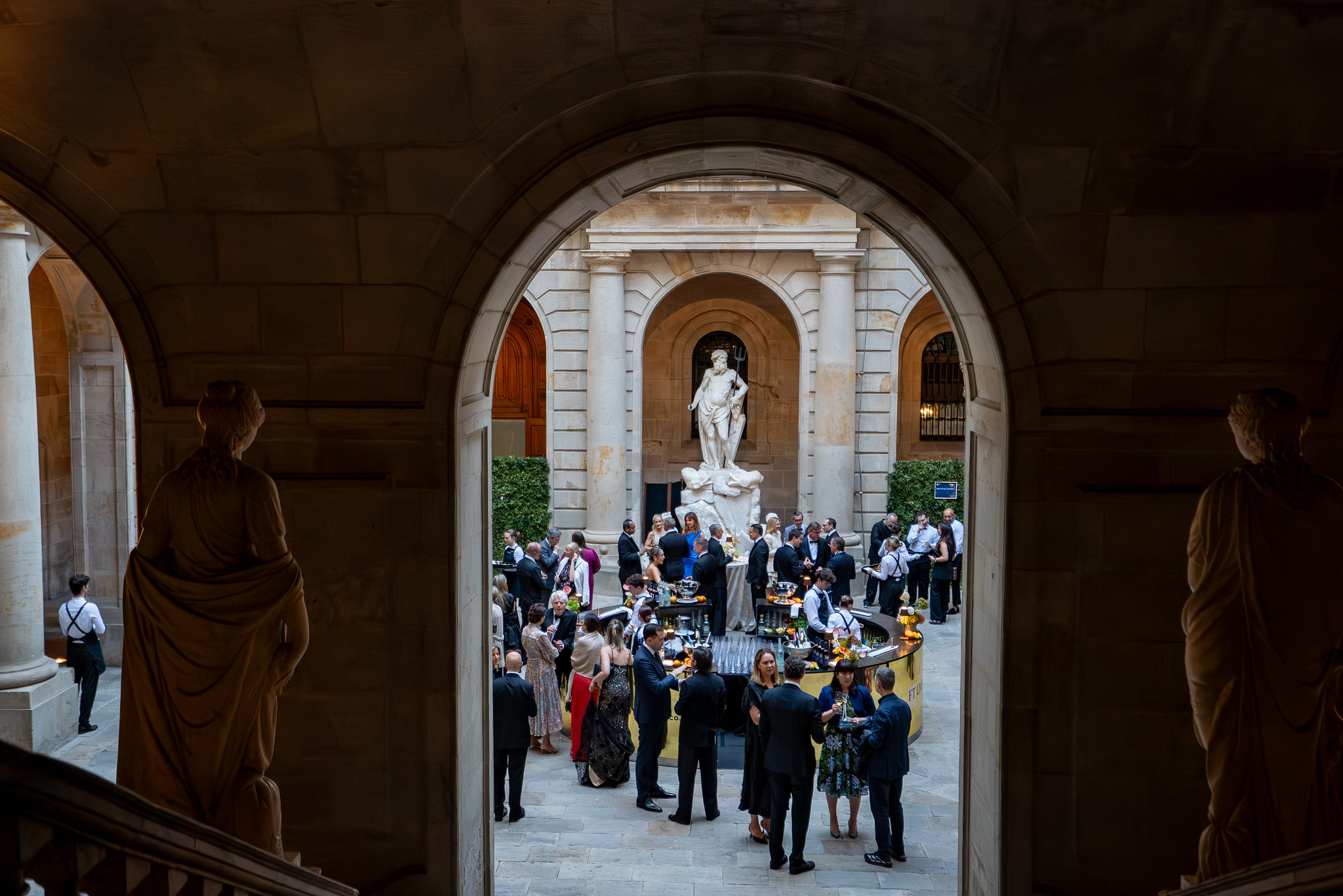
The Real Work of Sustainability: How to Build Ethical Supply Chains
Moderated by FT fashion editor Lauren Indvik, the panel featured Amy Powney of AKYN, Vishal Kapoor of Chia, and Filippo Bianchi of BCG, each tackling a different link in fashion’s fragmented chain. Luxury fashion is being pushed to confront its deepest complexities, not in boutiques, but in fields, dye houses, and factories. As calls for transparency grow louder and legislation tightens, ethical supply chains are no longer optional, they're imperative.
For Powney, building her brand AKYN was a chance to start over. Her earlier journey - described in 2022 documentary Fashion Reimagined - was about tracing materials back to the source. “The learning was less about specifics, more about mindset,” she said. AKYN now uses only five low-impact materials and follows a regenerative approach to design: “How do we grow fibres in ways that replenish the soil, not exhaust it? How do we manufacture in factories using renewable energy and closed-loop systems?” Communicating this complex nuance to consumers isn’t easy. “After the film, I genuinely thought people would change. They didn’t,” she added, disappointed.
That disconnect between brand claims and consumer trust is where Vishal Kapoor sees blockchain playing a role. “Trust starts with transparency,” he said. “If you're going to make a claim, you have to back it up with data.” Chia’s platform allows supply chain steps to be recorded immutably - though he cautions it’s not a cure-all. “Sustainability has no universal measure. But if you have a way to verify, you should use it.”
Filippo Bianchi presented the views of the industry, noting how labour scandals in Italy have become a turning point. “Governments have come in hot, demanding more traceability and investment in enabling technologies,” he said. Luxury’s problem, he argued, lies in its fragmented supply chains: generations of outsourcing to tiny, specialised suppliers have created opacity. “Lack of visibility leads to risk - and sometimes, exploitation.”
So where does that leave brands? With a clear challenge: to shift from performative sustainability to operational ethics. As Powney put it, “Can we make a product so light on the Earth that it leaves room for regeneration? And provides jobs and dignity along the way?” Ethics in fashion, the panel made clear, isn’t a campaign: it’s a commitment to reshaping the system from the soil up.
Keynote Interview with CEO of Puig, Marc Puig
During a keynote interview, FT Milan Correspondent Silvia Sciorilli Borrelli sat down with Marc Puig (Chairman and CEO of Puig). Delighted to be in his hometown of Barcelona, Puig began by countering the doom and gloom expressed by some of the previous panels. The post-Covid euphoria has worn off, leaving caution in its wake. “Whenever there is uncertainty… confidence goes down,” Puig comments. Alongside the behavioral changes of Gen Z (whose influences from TikTok and social media have led to a surge in consumerism in the young, notably in the sales of fragrances), led Puig to draw a comparison between running a family and running a business. “In families” he noted, “you manage your kids as a socialist system. You give them the same amount of food… the same amount of love. In business, you need hierarchy, you need pecking order”. Puig went on to scope the future, highlighting the importance of choosing a leader. He claimed that, sometimes, looking beyond the traditional brand walls is the best way to grow: “In every generation you need to find the right leadership, and the right governing bodies. Once you have that you have twenty years of peace – of development."
Where Does AI Belong in High-End Fashion?
As artificial intelligence gains momentum across industries, the luxury sector finds itself at a crossroads: how to adopt new technologies without compromising the craftsmanship and exclusivity that define its essence. In this illuminating session moderated by Silvia Sciorilli Borrelli, the two experts Ian Padgham and Anne-Laure Colcy - both from creative and strategic backgrounds - sat down to explore how AI has begun to shape high-end fashion, and how brands are balancing innovation with emotional and artisanal value. Drawing on their own experiences, they spoke about the ways in which technology had already begun to influence everything from storytelling to customer engagement.
Ian Padgham, the founder of Origiful, is celebrated for his innovative short-form storytelling that merged art with technology. Working with global luxury brands, he helps them reimagine their digital presence through cinematic and emotionally resonant content that captivated online audiences and pushed the boundaries of fashion marketing. A visual artist and filmmaker known for blending craftsmanship with digital media, he described how he had used AI tools to enhance narrative expression and amplify brand emotion. His projects for luxury houses lean into AI not for automation’s sake, but in order to push the boundaries of the visual imagination—creating content that feels at once playful, unexpected, and deeply human. AI, he suggested, wasn’t replacing creativity, but reframing what was possible.
Anne-Laure Colcy, Executive Vice President, Global Luxury Lead at Capgemini Invent, offered a strategic view from within the industry. She discussed how brands were increasingly using AI to personalise the customer journey, manage supply chains more efficiently, and even predict future tastes, while remaining acutely aware of the need to preserve the emotional core of luxury.
Drawing on her work with clients, she emphasised that true innovation in the sector came not from abandoning tradition, but from blending it thoughtfully with new technologies. Together, they painted a picture of a sector cautiously but confidently moving into a new era, where AI could enhance storytelling, bolster sustainability, and elevate experience, without losing the heritage and exclusivity that made luxury unique.
Amid market volatility and global uncertainty, this was not just a summit about style - it was a forum for strategic foresight. Across two days of rich conversation, with SPHERE as a Supporting Partner, this 21st running of the FT Business Luxury Summit spotlighted the resilience, reinvention and relevance that define luxury today - as well as the bold leadership it demands for tomorrow.
The dealmakers’ view: What’s driving luxury acquisitions?
On to the money. In the panel talk on ‘The dealmakers’ view: What’s driving luxury acquisitions?’, Tara Alhadeff (Partner at Permira) and co-head of Merchant Banking at Stanhope Capital Pierre Mallevays joined Adrienne Klasa in a conversation which ranged from how brand equity enhances the value of a company, to the challenges facing private equity firms today. “If you’re going to sell a business, a smart person on the other side of the table needs the belief that the business is there for the long run, and it has another decade of growth ahead of it”, Alhadeff explained, “You can’t pull the wool over anyone’s eyes”.
To allow the business to get bigger than the brand by, for example, jumping on trends, is entirely unsustainable. Because of this, partnering with a firm who takes the decade-long approach is far more sustainable in the long term. “You need to be happy holding way beyond your investment horizon,” Alhadeff cautions. “Luxury and investment in the brand is something that financial investors should tread with caution – and choose very, very carefully”.
Alhadeff differentiates between two business archetypes: the first globally-known brands with heritage in abundance. In this case, the business is much smaller than the brand (for example, it is under family ownership). “Those are heritage or family brands where we think we can build on the brand equity and help them grow”. The second archetype involves newer, younger brands, who are likely to be disruptive - in supply chain, distribution or price point. These brands have more “tailwind”, and, arguably, a dynamism the heritage-heavy brands can lack.
Citing Golden Goose (the sneaker brand) and, at a lower price point, Reformation, Alhadeff concludes: “There are two archetypes, but we are really always looking for opportunity”. Mallevays concurs: “At the end of the day, luxury and private equity can go hand in hand,”. He offers a positive outlook on future growth: “The gap between sellers and buyers has reduced, and as a result of that it’s more conducive to good deals happening across sectors”
Shifting consumer trends: The role of bricks and mortar
FT HTSI editor Jo Ellison sat down with panelists Julia Goddard (CEO of Harvey Nichols), Joan Jove (co-CEO of the McArthurGlen Group), and Zuzanna Pusz (Head of European Luxury Goods Research at UBS Investment Bank) to talk through the role of the bricks-and-mortar store in a world of dwindling foot-traffic. Ellison guided the talk from the serious to the lighthearted, opening with the panellists’s favourite places to shop, which ranged from Selfridges (queue gasp from Harvey Nichols CEO Julia Goddard), Loro Piana to Antonio in Milan, and concluded with Ellison’s own choice of Panzer’s deli in St John’s Wood, London. Then came the more serious conversation, tackling the mounting online competition bricks and mortar stores face. Discussing how to capture a customer’s attention in endless phone scroll and fast-paced content consumption, and pondering the future of multi-brand stores, the panellists ranged from optimistic to realistic. “The luxury client is a tiny, tiny, tiny percentage of people… everyone else is the ‘aspirational shopper’” Ellison stated, then admitting that this feels inherently wrong. Whereas once £250 was seen as the gateway to luxury, the spend is now closer to £4,000. In outlet retail, the line between the aspirational shopper and the luxury consumer is crossed. Jove states that “we’re offering the brand experience at an affordable price, where you can create an emotional connection in an environment that allows you to feel that connection”. This is something the panel agreed the internet cannot replicate.
Interview with Damien Bertrand, CEO Loro Piana
In his interview with FT HTSI Editor Jo Ellison, Damien Bertrand, CEO of Italian brand Loro Piana, opened with the importance of the brand’s heritage when contemplating its future image. Loro Piana has ‘stuck to the knitting’ and reminded the audience, “We are a textile company; and we remain a textile company”. It has been its“quest” for more than 100 years to find the most precious and sought-after raw materials. Ellison noted that Loro Piana is able to read the market in a way that many others are unable to do. In a deep-dive into his first 100 days in the company, Betrand recalls the “sparkle in the eyes” of his clients from luxury industries to discuss the brand. He says that it was at that point that he began to understand just how unique both the product, the image and the texture was. “You can have the most beautiful store, the most beautiful activation,” he said, “but if you don’t have the right product or the right image, there will be a problem”.
Bertrand’s next step was to work with the design team to break-down and define the Loro Piana silhouette: “We are not a logo brand,” Bertrand emphasises. In a radical move, the team decided to dispense with the ‘Male’ and ‘Female’ Collections, and provide a single line for all genders, curated by one inspiration and one colour palette. Defining a silhouette is a way to present a brand-image without a visible brand-name – in his view, the definition of quiet luxury. Bertrand dismisses the phrase of quiet luxury as “a marketing construct”, describing it as “true luxury, timeless and not noisy”.
Next, Bertrand explained the brand’s redefinition of its signature product, as well as revealing the rationale behind the brand’s decision to branch into leathergoods. “An iconic product is not born iconic. It becomes iconic”, Bertrand states. It is not for the team to decide, but is something entirely in the hands of the client. The Loro Piana Walk Shoe is the brand’s signature example. After a lively discussion into the ethics and sustainability goals of the brand, which came following backlash from a negative viral TikTok, Bertrand returned to the significance of relationships between client, supplier, company, and animal. Bertrand’s biggest take away from his CEO role at Loro Piana? “Trust your guts."
See you next year in Puglia!
FT Business of Luxury 2026
